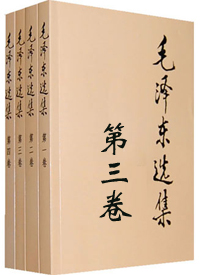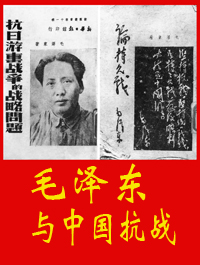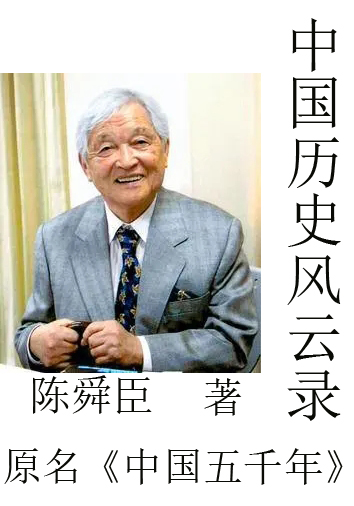The mouse which had been caught was a pitiful specimen; but the cat rejoices even over a lean mouse.
Who were these Thenardiers?
Let us say a word or two of them now. We will complete the sketch later on.
These beings belonged to that bastard class composed of coarse people who have been successful, and of intelligent people who have descended in the scale, which is between the class called "middle" and the class denominated as "inferior," and which combines some of the defects of the second with nearly all the vices of the first, without possessing the generous impulse of the workingman nor the honest order of the bourgeois.
They were of those dwarfed natures which, if a dull fire chances to warm them up, easily become monstrous. There was in the woman a substratum of the brute, and in the man the material for a blackguard. Both were susceptible, in the highest degree, of the sort of hideous progress which is accomplished in the direction of evil. There exist crab-like souls which are continually retreating towards the darkness, retrograding in life rather than advancing, employing experience to augment their deformity, growing incessantly worse, and becoming more and more impregnated with an ever-augmenting blackness. This man and woman possessed such souls.
Thenardier, in particular, was troublesome for a physiognomist. One can only look at some men to distrust them; for one feels that they are dark in both directions. They are uneasy in the rear and threatening in front. There is something of the unknown about them. One can no more answer for what they have done than for what they will do. The shadow which they bear in their glance denounces them. From merely hearing them utter a word or seeing them make a gesture, one obtains a glimpse of sombre secrets in their past and of sombre mysteries in their future.
This Thenardier, if he himself was to be believed, had been a soldier-- a sergeant, he said. He had probably been through the campaign of 1815, and had even conducted himself with tolerable valor, it would seem. We shall see later on how much truth there was in this. The sign of his hostelry was in allusion to one of his feats of arms. He had painted it himself; for he knew how to do a little of everything, and badly.
It was at the epoch when the ancient classical romance which, after having been Clelie, was no longer anything but Lodoiska, still noble, but ever more and more vulgar, having fallen from Mademoiselle de Scuderi to Madame Bournon-Malarme, and from Madame de Lafayette to Madame Barthelemy-Hadot, was setting the loving hearts of the portresses of Paris aflame, and even ravaging the suburbs to some extent. Madame Thenardier was just intelligent enough to read this sort of books. She lived on them. In them she drowned what brains she possessed. This had given her, when very young, and even a little later, a sort of pensive attitude towards her husband, a scamp of a certain depth, a ruffian lettered to the extent of the grammar, coarse and fine at one and the same time, but, so far as sentimentalism was concerned, given to the perusal of Pigault-Lebrun, and "in what concerns the sex," as he said in his jargon--a downright, unmitigated lout. His wife was twelve or fifteen years younger than he was. Later on, when her hair, arranged in a romantically drooping fashion, began to grow gray, when the Magaera began to be developed from the Pamela, the female Thenardier was nothing but a coarse, vicious woman, who had dabbled in stupid romances. Now, one cannot read nonsense with impunity. The result was that her eldest daughter was named Eponine; as for the younger, the poor little thing came near being called Gulnare; I know not to what diversion, effected by a romance of Ducray-Dumenil, she owed the fact that she merely bore the name of Azelma.
However, we will remark by the way, everything was not ridiculous and superficial in that curious epoch to which we are alluding, and which may be designated as the anarchy of baptismal names. By the side of this romantic element which we have just indicated there is the social symptom. It is not rare for the neatherd's boy nowadays to bear the name of Arthur, Alfred, or Alphonse, and for the vicomte--if there are still any vicomtes--to be called Thomas, Pierre, or Jacques. This displacement, which places the "elegant" name on the plebeian and the rustic name on the aristocrat, is nothing else than an eddy of equality. The irresistible penetration of the new inspiration is there as everywhere else. Beneath this apparent discord there is a great and a profound thing,-- the French Revolution.
那只被逮住的老鼠是瘦的,但是猫儿,即使得了一只瘦老鼠,也要快乐一场。
那德纳第夫妇是什么东西呢?
我们现在简单地谈谈。将来再补充描绘他们的轮廓。
这些人属于那种爬上去了的粗鄙人和失败了的聪明人所组成的混杂阶级,这种混杂阶级处于所谓中等阶级和所谓下层阶级之间,下层阶级的某些弱点和中等阶级的绝大部分恶习它都兼而有之,既没有工人的那种大公无私的热情,也没有资产阶级的那种诚实的信条。
这些小人,一旦受到恶毒的煽动就很容易变成凶恶的力量。那妇人就具有做恶婆的本质,那男子也是个无赖的材料。他们俩都有那种向罪恶方面猛烈发展的极大可能性。世上有一种人就象虾似的不断退向黑暗,他们一生中只后退,不前进,并且利用经验,增加他们的丑恶,不停地日益败坏下去,心地也日益狠毒起来。这一对男女,便是那种东西。
尤其是那德纳第汉子,他可以使观察他的人感到局促不安。我们对某些人只须望一眼便起戒惧之心,我们觉得他们在两方面都是阴森森的,在人后,他们惶惶终日,在人前,他们声势凶狠。他们的心,从不告人。我们无从知道他们曾干过什么,也无从知道他们将干些什么。他们目光中的那种遮遮掩掩的神情才会把他们揭露出来。我们只须观察他们的一言一行便可想见他们过去生活中一些见不得人的隐事和未来生活中一些阴谋鬼计。
这个德纳第,如果我们相信他自己说的话,是当过兵的;据他自己说,他当过中士;他大致参加过一八一五年的那次战役①,据说还表现得相当勇敢。将来我们就会知道他究竟是怎样的一个人。在他酒店的招牌上描绘了他在作战中的一次亲身经历。那是他自己画的,因为他什么都会干一点,但都干不好。
①指滑铁卢战役。
当时的古典主义旧小说,在《克雷荔》以后就只有《洛多伊斯卡》,那些书都还高尚,但越往后越庸俗,从斯居德黎小姐降至布隆-麻拉姆夫人,从拉法耶特夫人降至巴德勒米-哈陀夫人,那一类小说都把巴黎那些看门女人的情火点燃了,甚至连累郊区。德纳弟妈妈恰有足够的聪明能读那一类书籍。她寝馈其中,把自己微弱的脑力沉浸在那里,因此,在她很年轻时,甚至在年龄稍大时,她在她丈夫身旁总显得心事重重似的。她丈夫是一个深沉的滑头,不务正业,略通文法,既粗鄙又精明,在言情小说方面他爱读比戈-勒白朗的作品,“在性的问题上”(这是他的口头禅),他却是个正经的鲁男子,从不乱来。他妻子的年龄比他小十二到十五岁。后来,当浪漫的堕马髻渐成白发,佳人转为丑妇,德纳第太太便成为一个肥胖、恶劣、尝过一些下流小说滋味的妇人了。读坏书的人总免不了坏影响。结果,她的大女儿叫做爱潘妮。至于小女儿,那可怜的孩子,几乎叫做菊纳尔,幸而狄克莱-狄弥尼尔的一部小说,倒莫名其妙的救了她,她只叫做阿兹玛。
此外,我们还顺便提一下,我们现在谈到的那个怪时代,在替孩子们取小名方面固然混乱,但也不见得事事都浅薄可笑。在我们刚才指出的那种浪漫因素以外,也还有一种社会影响。目前,平民的孩子叫做阿瑟、亚福莱或阿尔封斯,子爵(假使还有子爵的话)叫做托马、皮埃尔或雅克,那都不是什么稀罕的事。“高雅”的名字移到平民身上,村野的名字移到贵人身上,那样的交流只能说是平等思想激荡的后果。新思潮深入一切,无可阻挡,孩子命名的情形,便是一例。在这种混乱现象的后面存在一种伟大深刻的东西,那就是法兰西革命。






